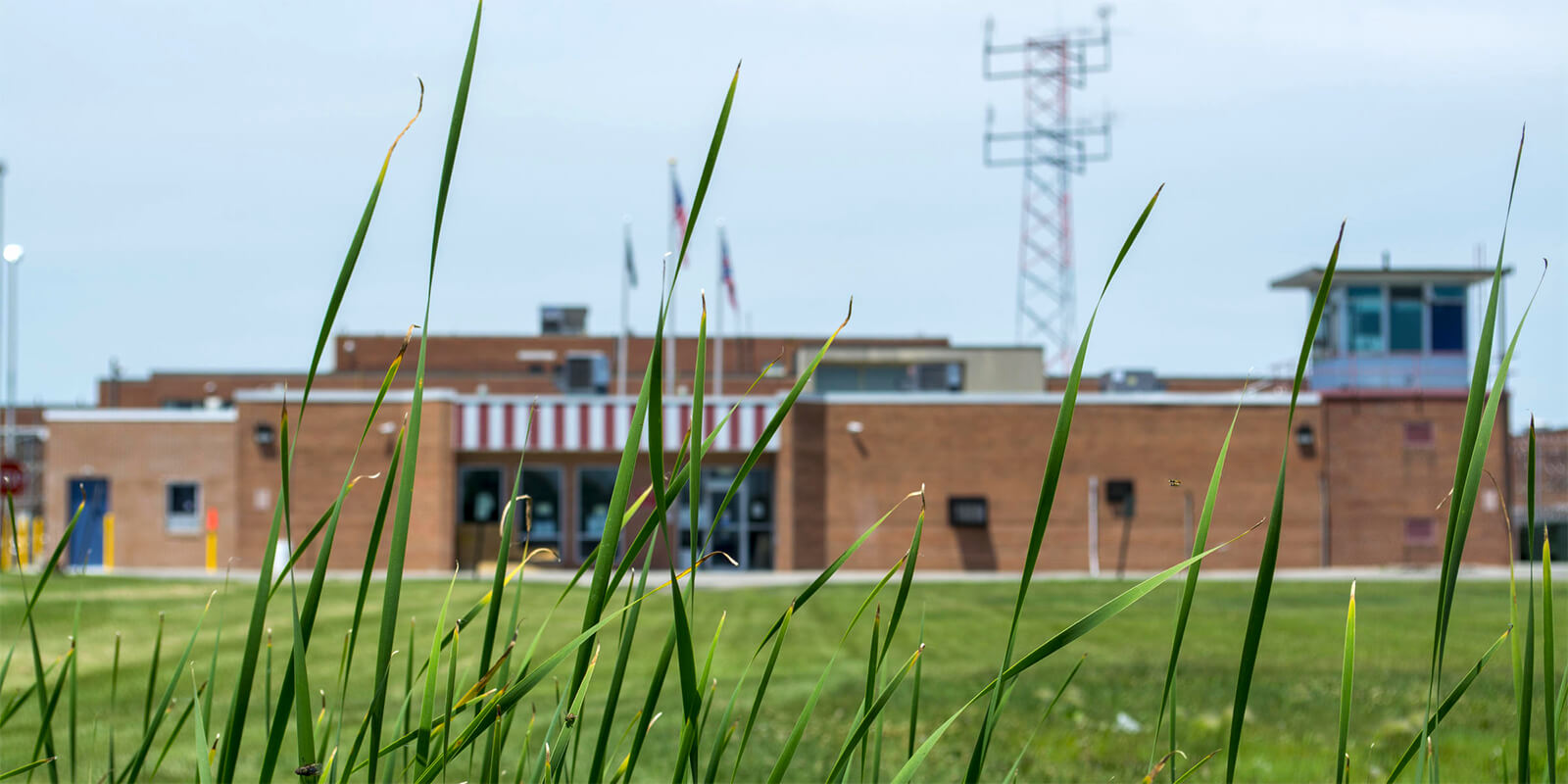The nation’s corrections officers (COs) face two problems as the facilities where they work become coronavirus hotspots.
They face threats of job losses because states are experiencing budget crunches and struggling to keep prisons fully staffed. And they are forced to battle the pandemic without the personal protective equipment (PPE) they need, even though more co-workers and inmates are getting infected each day.
Two Ohio COs – including one who has COVID-19 – and one from Connecticut joined Ohio Sen. Sherrod Brown and AFSCME President Lee Saunders on a media call Tuesday to discuss the crisis brewing in jails, prisons and detention centers, and to urge Congress to provide state and local assistance without delay.
Brian Miller, a CO at Marion Correctional Institution and president of Chapter 5190 (OCSEA/AFSCME Local 11), is fighting off a COVID-19 infection. He said managers of the Marion, Ohio, facility announced in mid-March that the first staff member had tested positive for the coronavirus.
“Now, more than 90% of our inmates are positive. Half our staff is sick. One of our brothers has passed from the disease, and the National Guard has been brought in temporarily to help secure the facility,” Miller said. “We are so short-staffed that we are pulling four or more double shifts in a row. Those of us who are sick are forced to report to work after only three days of being symptom free.”
Without additional testing, “there is no way to know whether we are exposing both staff and offenders,” Miller said. “Things are beyond a breaking point in the facility. Leadership didn’t include the union or input from the people on the ground in the process at all, and now they don’t know if we’ll be able to get back to full staffing again.”
AFSCME is seeking as much federal aid as it takes to help state and local governments fund public services. However, many lawmakers, including Senate Majority Leader Mitch McConnell (R-Ky.), have opposed such aid. Without federal help, states may be forced to lay off legions of workers and gut essential services, moves that would decimate an economy already on its knees.
“I hear a lot of my colleagues – from conservatives to liberals – who love to say they want to thank our front-line workers. But ‘thank you’ isn’t enough,” Brown warned. “We need to ensure that our front-line workers have what they need to stay healthy. COVID-19 hits our cities and counties and states particularly hard. They need robust flexible funding to keep serving their residents.”
Steve Wales, who works at the Corrigan-Radgowski Correctional Center in Uncasville, Connecticut, is a member of AFSCME Local 1565 (Council 4). Wales said 326 COs and 417 offenders have tested positive for COVID-19 in the state so far.
The facility where he works is still short on PPE.
“The state finally distributed N95 masks last week. But COVID-19 hit us six weeks ago,” Wales said.
So many of his co-workers are out sick with COVID-19 that Wales said he has worked 40 days straight, many of them 16-hour days. And he’s not the only one.
“The COVID-19 pandemic shows why it’s crucial to adequately fund our state government programs and that's why we're calling on Congress to provide robust funding for state and local governments,” Wales said. “It’s disrespectful to public service workers when we do not have adequate PPE or when we do not have adequate funding to support our work.”
Saunders blasted lawmakers who are refusing to help states and localities.
“It’s interesting how some folks can always find billions to bail out big corporations or to give the super-wealthy generous tax breaks. But when working people and their communities need help, when it comes to funding essential public services in a life-and-death situation, they become stern deficit hawks,” Saunders said.
To Michael Rider, president of OCSEA Chapter 2758, the lack of PPE is almost more infuriating than short-staffing at Ohio’s correctional facilities.
Rider works as a CO at Franklin Medical Center and the Ohio State University Wexner Medical Center in Columbus. Franklin Medical serves as the main medical hub for offenders. OSU has a secure prison unit within the hospital, but some offenders are also spread out in satellite rooms that must be guarded by a CO outside the door.
“Typically, we would have a maximum of 25 satellite rooms … but this crisis has hit Ohio corrections so hard that last week we had 106 patients in satellite rooms,” Rider said.
The continued scarcity of PPE, to Rider, is unconscionable.
“When this first started, we were not given any masks – even after the governor had declared a state of emergency. We had to fight to even be allowed to bring in our own PPE from home,” Rider said.
“Since then, we have been given surgical masks, but surgical masks only help prevent you from spreading the virus. They don’t protect you from contracting it the way an N95 mask does,” he said. “They make us go through all of these security measures, taking our temperature and asking us screening questions, and then they hand us a mask that does not protect us as we walk into a war zone.”
